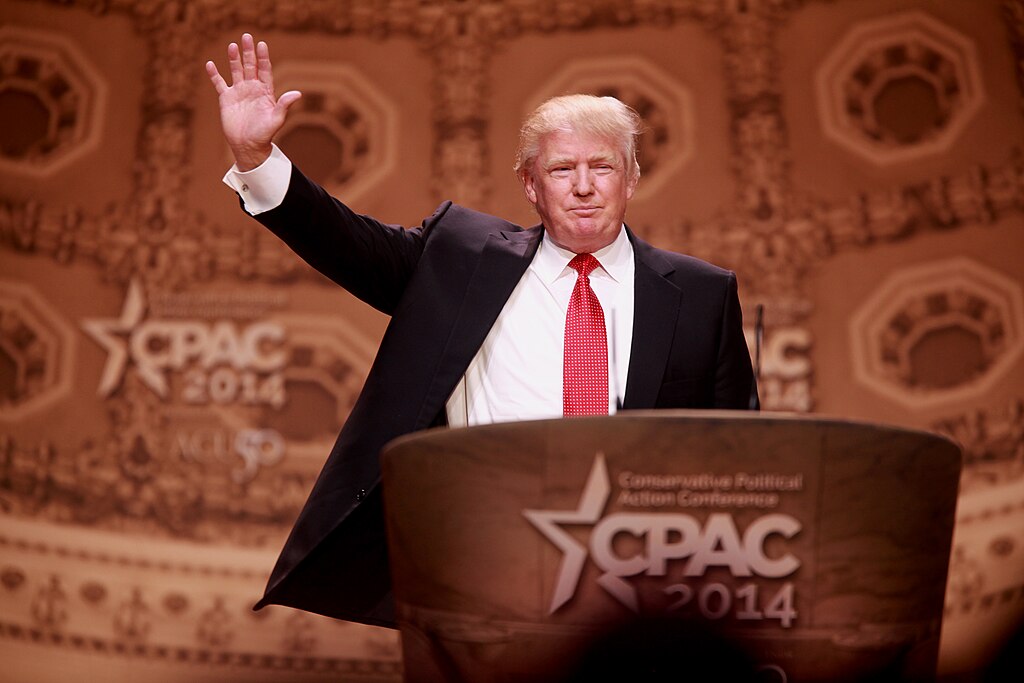As President-elect Donald Trump prepares for his second term, he has vowed to expand on the controversial tariffs introduced during his first tenure. Targeting America's trading partners, including Canada, Mexico, and China, Trump threatens to impose stricter levies unless they meet demands ranging from border security to supply chain reforms. While the rhetoric has energized some domestic industries, economists caution that tariffs are a double-edged sword with significant winners and losers.
Trump has already set his sights on countries like Canada and Mexico, calling for stronger measures to combat undocumented migration and drug trafficking across U.S. borders. However, experts argue that while such policies aim to protect certain domestic sectors, they could trigger economic ripple effects that harm consumers, exporters, and global trade dynamics.
Winners: Domestic Manufacturers and Select Industries
Supporters of Trump’s tariff policy highlight potential benefits for specific domestic industries. Gene M. Grossman, a professor of international economics at Princeton University, noted that manufacturing sectors such as toys, furniture, and appliances could see gains. By shielding these industries from foreign competition, tariffs allow U.S. firms to increase their prices and expand their market share.
Kyle Handley, an economics professor at UC San Diego, also pointed out that industries competing directly with imports, such as steel manufacturers, may benefit from reduced competition. Additionally, firms with political connections could receive tailored tariff exemptions, gaining an edge over competitors. Grossman emphasized that countries producing goods similar to those from China, such as Vietnam and Mexico, might also benefit from trade diversion.
Despite these potential advantages, experts stress that gains will likely be concentrated among a limited group of industries and firms.
Losers: Consumers, Exporters, and Supply Chains
The broader economic fallout of increased tariffs is expected to disproportionately affect consumers and exporters. Alan S. Blinder, a former Federal Reserve vice chairman, warned that higher prices on imported goods will hit U.S. consumers and businesses reliant on foreign inputs. Industries like auto manufacturing and aerospace, which depend on complex global supply chains, could face higher costs, reduced profits, and potential layoffs.
Harvard economist Jeffrey Frankel highlighted that soybean farmers and other exporters could face retaliation from foreign governments, further compounding economic losses. Frankel also suggested that inflation could rise, adding pressure to housing and other sectors already grappling with elevated costs.
Additionally, Handley cautioned that across-the-board tariffs might lead to lower wages and job cuts long before businesses consider reshoring production. “The biggest losers will be industries that use significant imported inputs,” he explained.
Public Reaction: Divided Opinions on Tariffs
Trump’s tariff policies have sparked heated debate on social media, with opinions ranging from strong support to outright criticism:
- @TradeWinsUSA: “Tariffs level the playing field for American workers. We need to protect our industries!”
- @EconGuru90: “Consumers will pay the price. Higher costs hurt us all, not just foreign exporters.”
- @FarmerFirst: “What about retaliation? Our farmers can’t survive another trade war.”
- @SteelStrong: “Finally, a president who cares about American manufacturing!”
- @SupplyChainPro: “Tariffs don’t fix global supply chains—they disrupt them. This will hurt more than it helps.”
- @ShopperAngst: “So my Cyber Monday deals will be even more expensive next year? No thanks, Mr. President.”



 Japan Election 2026: Sanae Takaichi Poised for Landslide Win Despite Record Snowfall
Japan Election 2026: Sanae Takaichi Poised for Landslide Win Despite Record Snowfall  Taiwan Says Moving 40% of Semiconductor Production to the U.S. Is Impossible
Taiwan Says Moving 40% of Semiconductor Production to the U.S. Is Impossible  Trump Says “Very Good Talks” Underway on Russia-Ukraine War as Peace Efforts Continue
Trump Says “Very Good Talks” Underway on Russia-Ukraine War as Peace Efforts Continue  Anutin’s Bhumjaithai Party Wins Thai Election, Signals Shift Toward Political Stability
Anutin’s Bhumjaithai Party Wins Thai Election, Signals Shift Toward Political Stability  Trump Slams Super Bowl Halftime Show Featuring Bad Bunny
Trump Slams Super Bowl Halftime Show Featuring Bad Bunny  Jack Lang Resigns as Head of Arab World Institute Amid Epstein Controversy
Jack Lang Resigns as Head of Arab World Institute Amid Epstein Controversy  Bosnian Serb Presidential Rerun Confirms Victory for Dodik Ally Amid Allegations of Irregularities
Bosnian Serb Presidential Rerun Confirms Victory for Dodik Ally Amid Allegations of Irregularities  Trump Congratulates Japan’s First Female Prime Minister Sanae Takaichi After Historic Election Victory
Trump Congratulates Japan’s First Female Prime Minister Sanae Takaichi After Historic Election Victory  Trump Allows Commercial Fishing in Protected New England Waters
Trump Allows Commercial Fishing in Protected New England Waters  Antonio José Seguro Poised for Landslide Win in Portugal Presidential Runoff
Antonio José Seguro Poised for Landslide Win in Portugal Presidential Runoff  Trump Backs Nexstar–Tegna Merger Amid Shifting U.S. Media Landscape
Trump Backs Nexstar–Tegna Merger Amid Shifting U.S. Media Landscape  Nicaragua Ends Visa-Free Entry for Cubans, Disrupting Key Migration Route to the U.S.
Nicaragua Ends Visa-Free Entry for Cubans, Disrupting Key Migration Route to the U.S.  Bangladesh Election 2026: A Turning Point After Years of Political Suppression
Bangladesh Election 2026: A Turning Point After Years of Political Suppression  Trump Signs Executive Order Threatening 25% Tariffs on Countries Trading With Iran
Trump Signs Executive Order Threatening 25% Tariffs on Countries Trading With Iran  Ghislaine Maxwell to Invoke Fifth Amendment at House Oversight Committee Deposition
Ghislaine Maxwell to Invoke Fifth Amendment at House Oversight Committee Deposition  New York Legalizes Medical Aid in Dying for Terminally Ill Patients
New York Legalizes Medical Aid in Dying for Terminally Ill Patients  Ohio Man Indicted for Alleged Threat Against Vice President JD Vance, Faces Additional Federal Charges
Ohio Man Indicted for Alleged Threat Against Vice President JD Vance, Faces Additional Federal Charges 
































